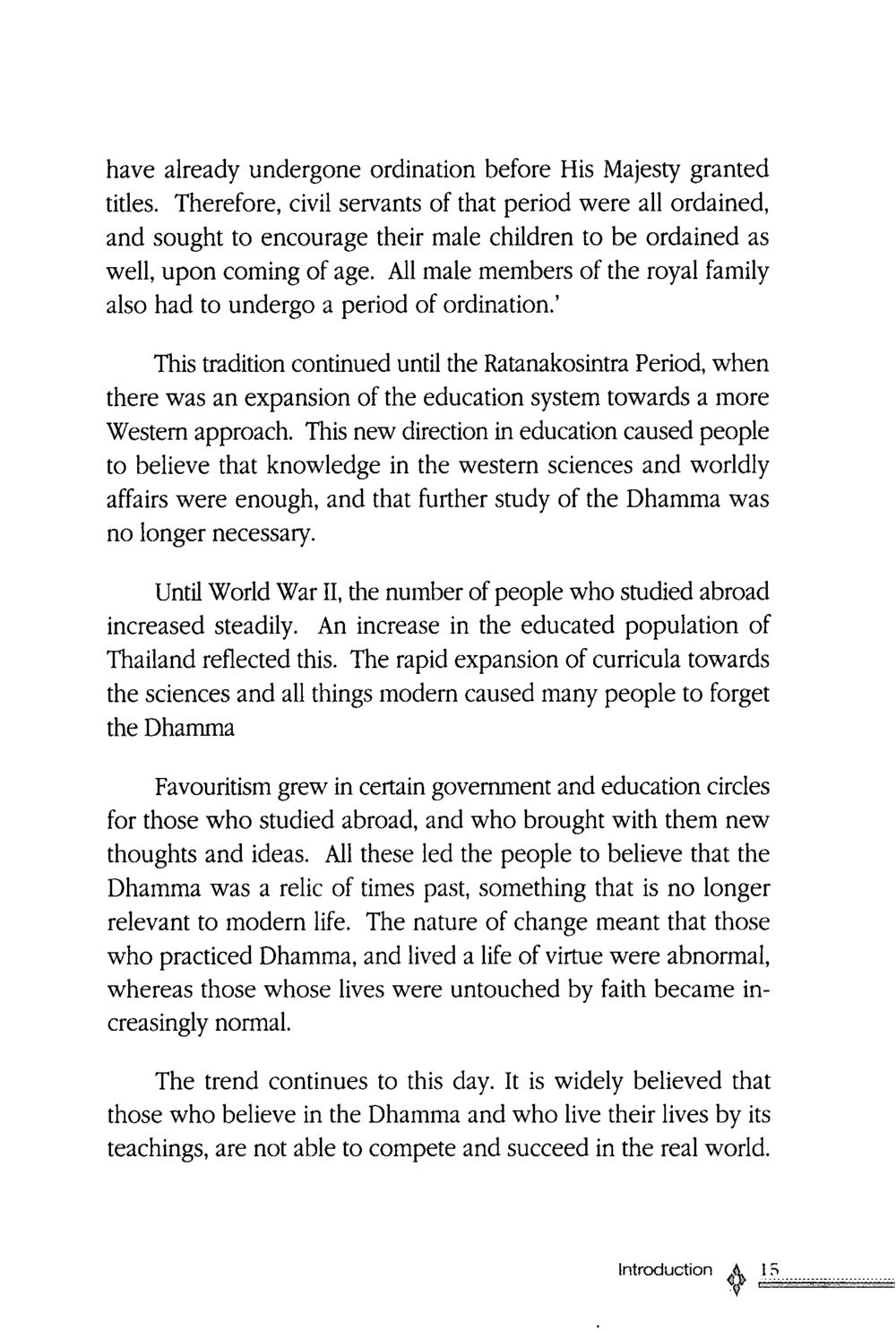The Evolution of Dhamma in Thai Society : หน้า 16/105
The ordination : หน้า 16/105 Explores the decline of Dhamma study in Thailand amid Western education influences post-Ratanakosintra Period.
0 ครั้ง

สรุปเนื้อหา
บทความนี้สำรวจการเปลี่ยนแปลงและการลดลงของการศึกษาเกี่ยวกับธรรมะในสังคมไทย โดยเฉพาะอย่างยิ่งในช่วงหลังกรุงรัตนโกสินทร์ เมื่อระบบการศึกษาหมุนเข้าสู่แนวทางตะวันตก ส่งผลให้ผู้คนเริ่มเชื่อว่า ความรู้ด้านวิทยาศาสตร์และการดำเนินชีวิตทางโลกเพียงพอแล้ว การศึกษาธรรมะจึงถูกมองข้ามไปอย่างต่อเนื่อง จนถึงสงครามโลกครั้งที่สอง ที่มีการศึกษาต่อในต่างประเทศเพิ่มขึ้น มีการก่อตั้งวงการพิซซ่าและการศึกษาทางวิทยาศาสตร์ ส่งผลให้จำนวนประชากรที่มีการศึกษาหมายขวาที่เพิ่มขึ้น สังคมเกิดความเชื่อว่าผู้ที่ปฏิบัติธรรมและใช้ชีวิตตามธรรมสอนนั้นไม่สามารถแข่งขันในโลกแห่งความจริงได้ จึงทำให้วิถีชีวิตตามความเชื่อถือดั้งเดิมเคยถูกมองว่าเชยเกินไป
หัวข้อประเด็น
-Tradition of Ordination
-Influence of Western Education
-Decrease in Dhamma Studies
-Cultural Perceptions of Faith
-Impact on Modern Thai Society









































































































